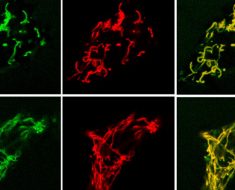(HealthDay)—Among older adults in primary care, use of proton pump inhibitors (PPIs) is associated with greater risk of pneumonia in the second year of treatment, according to a study published in the July issue of the Journal of the American Geriatrics Society.
Jan Zirk-Sadowski, Ph.D., from the University of Exeter in the United Kingdom, and colleagues assessed associations between long-term use of PPIs and pneumonia incidence. The analysis included 75,050 older adults (≥60 years) who were in primary care and had been receiving PPIs for at least one year and 75,050 age- and sex-matched controls.
The researchers found that during the second year after initiating treatment, PPIs were associated with greater hazard of incident pneumonia (prior event rate ratio-adjusted hazard ratio, 1.82), accounting for pretreatment pneumonia rates. Across age and comorbidity subgroups, estimates were similar.
“Controversies about the validity of reported short-term harms of PPIs should not divert attention from potential long-term effects of PPI prescriptions on older adults,” the authors write.
Source: Read Full Article





